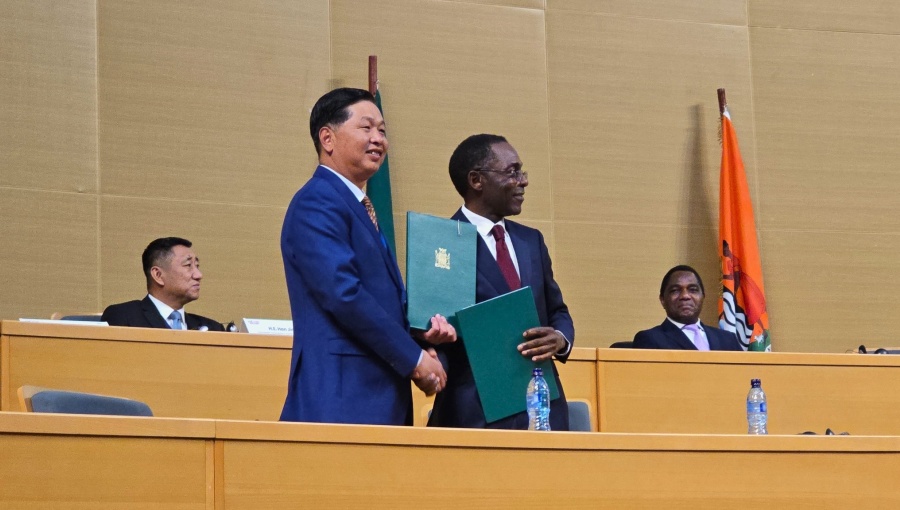Zambia has signed a $1.1 billion deal with China’s Fujian Xiang Xin Corporation to build a large-scale crude oil refinery that will slash fuel imports and position the country as a regional supplier of refined petroleum.
The refinery will be constructed in Ndola, Copperbelt Province, and will process 60,000 barrels of crude oil per day, enough to fully meet Zambia’s current domestic demand for fuel.
The agreement, announced by the Industrial Development Corporation (IDC) of Zambia, comes as the country looks to boost energy independence, reduce exposure to global oil price volatility, and support broader industrialisation.
Construction is scheduled to begin in Q3 of 2025, with commercial production targeted for 2026. The complex will also include facilities for bitumen production, LPG bottling, lubricant blending, and a 130-megawatt power plant, providing multiple streams of energy and industrial output.
Crude oil will be imported from the Middle East through the Port of Dar es Salaam in Tanzania, and then transported to Zambia, aligning with the government’s strategy of diversifying fuel sources and routes.
According to IDC, this project could save Zambia hundreds of millions of dollars annually that are currently spent on fuel imports. Officials say the refinery will not only improve economic resilience and ease pressure on the foreign exchange market, but also create jobs, stimulate local industries, and boost GDP growth.
The plant will also enable fuel exports to regional neighbours, including the Democratic Republic of Congo (DRC), Malawi, and Zimbabwe, making Zambia a central player in southern Africa’s energy sector.
“This marks a pivotal step in our energy security strategy and our commitment to reducing import dependency,” an IDC spokesperson said.
President Hakainde Hichilema, who has prioritized energy reform and foreign direct investment (FDI), is championing the refinery as a critical part of his government’s long-term development vision. The project aligns with his administration’s push to modernize infrastructure and attract global investment into key sectors.
Zambia currently relies on imports for nearly all of its petroleum products, making the economy vulnerable to global oil price swings and foreign currency shocks. The new refinery is expected to stabilize local fuel prices, reduce supply chain costs, and attract ancillary investments in logistics, infrastructure, and downstream industries.
The refinery is being seen as a game-changer not just for Zambia, but for the region, where fuel shortages and high prices often hinder economic growth and cross-border trade.
If completed on time and at scale, Zambia could soon shift from being a fuel importer to a net exporter, creating new revenue streams and increasing its influence in regional energy markets.
